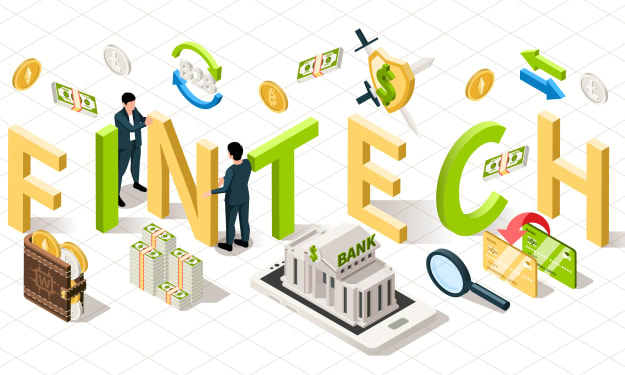The Revolutionary Potential of Blockchain Technology
Blockchain technology has emerged as a groundbreaking innovation that is reshaping industries worldwide.

Blockchain technology has emerged as a groundbreaking innovation that is reshaping industries worldwide. In this comprehensive guide, we delve into the transformative power of blockchain and how it is revolutionizing the world of technology. Offering unparalleled security, transparency, and efficiency, blockchain is poised to reshape the future of businesses across various sectors.
Understanding Blockchain Technology
Blockchain technology is often regarded as an enigma to many, yet its potential is boundless. Essentially, blockchain is a decentralized system that ensures the integrity of data and prevents unauthorized manipulation. It offers a multitude of applications, including cryptocurrencies, non-fungible tokens (NFTs), medical records, voting systems, and more.
When information is shared on the blockchain, it is organized into blocks and secured using cryptographic techniques. In the realm of finance, blockchain technology has gained significant traction. Cryptocurrencies like Bitcoin, Dogecoin, Solana, and Ethereum have emerged as alternative versions of the original Bitcoin blockchain, providing improved functionalities and applications.
A Brief History of Blockchain
To comprehend the future of blockchain, it is important to reflect on its origins. In October 2008, an individual known as Satoshi Nakamoto introduced Bitcoin, the world's first peer-to-peer electronic payment system. Bitcoin's open-source nature allowed users to view, reuse, modify, and adapt its underlying code. This led to the development of numerous blockchain variations and cryptocurrencies over the years.
Current Applications and Potential Use Cases
Today, businesses and individuals are exploring the vast potential of blockchain technology in various sectors. Supply chain management, healthcare, and energy are just a few areas where blockchain's transformative capabilities are being harnessed.
How Does Blockchain Work?
At its core, blockchain operates through a consensus mechanism, such as proof-of-work or proof-of-stake. In a proof-of-work system, miners solve complex mathematical problems to validate transactions and add them to the blockchain. In contrast, a proof-of-stake system validates transactions based on the participants' coin holdings.
Advantages of Blockchain Technology
The advantages offered by blockchain technology have captivated industries worldwide. Here are some key benefits:
Enhanced Security and Transparency: Blockchain's decentralized nature ensures robust security, making it extremely difficult to alter or tamper with the information stored in blocks. This transparency reduces the risks of fraud, corruption, and unauthorized access, making it ideal for financial transactions and data storage.
Improved Efficiency and Speed: By eliminating intermediaries and enabling peer-to-peer transactions, blockchain significantly reduces processing times and associated fees. This enhanced efficiency makes it particularly beneficial for cross-border payments and supply chain management.
Decentralization and Elimination of Single Points of Failure: Unlike centralized systems, blockchain's decentralized architecture eliminates single points of failure by distributing data across multiple nodes. This ensures system resilience and enhances data security.
Blockchain Applications in Various Industries
The potential applications of blockchain extend across diverse industries:
Finance and Banking: Blockchain enables faster, more secure transactions, simplifies identity verification processes, and facilitates smart contracts. These applications have the potential to revolutionize banking, insurance, and other financial services.
Supply Chain Management: Blockchain provides transparency and traceability in supply chain management, enabling real-time tracking of goods, verifying product authenticity, and improving overall efficiency. It aids in combating counterfeit products, reducing fraud, and ensuring ethical sourcing.
Healthcare: Blockchain securely stores and shares patient data, enabling interoperability between healthcare providers, enhancing data accuracy, and protecting patient privacy. It also fosters the development of personalized medicine and ensures drug traceability.
Real Estate: Blockchain streamlines property transactions, reducing fraud, and enabling secure and transparent property transfers. It automates contract execution and establishes an immutable record of ownership.
Challenges and Future Outlook
Blockchain technology faces challenges related to scalability and energy consumption. As transaction volumes increase, the existing blockchain infrastructure struggles to keep up. Additionally, the energy consumption associated with proof-of-work consensus mechanisms poses environmental concerns. However, ongoing research and development efforts are addressing these challenges through alternative consensus mechanisms and scalability solutions.
The regulatory landscape surrounding blockchain technology is still evolving, with governments and regulatory bodies working to strike a balance between innovation and consumer protection. Establishing clear and comprehensive regulatory frameworks is crucial for widespread blockchain adoption.
Furthermore, achieving interoperability and establishing common standards are essential for seamless integration of blockchain systems. Efforts are underway to develop interoperability protocols, allowing different blockchain networks to communicate effectively.
Despite the challenges, the future of blockchain technology is promising. As the technology matures, scalability solutions will emerge, and regulatory frameworks will provide clarity. This will pave the way for widespread adoption and unlock new opportunities for innovation.
Conclusion
Blockchain technology represents a groundbreaking innovation with the potential to transform various industries worldwide. Its decentralized and transparent nature offers heightened security, efficiency, and trust. While challenges remain, ongoing research and development efforts are laying the foundation for widespread blockchain adoption. It is crucial to stay informed and explore the multitude of options presented by this game-changing technology. Embrace the comprehensive guide to blockchain technology and embark on a journey of innovation and possibilities.
About the Creator
digitalranger
Digital Ranger is a Professional Technology Platform. we provide you with only interesting content. We're resolute in giving you the best of Technology, with a focus on dependability and Technology.
website: https://digitalranger.in






Comments
There are no comments for this story
Be the first to respond and start the conversation.